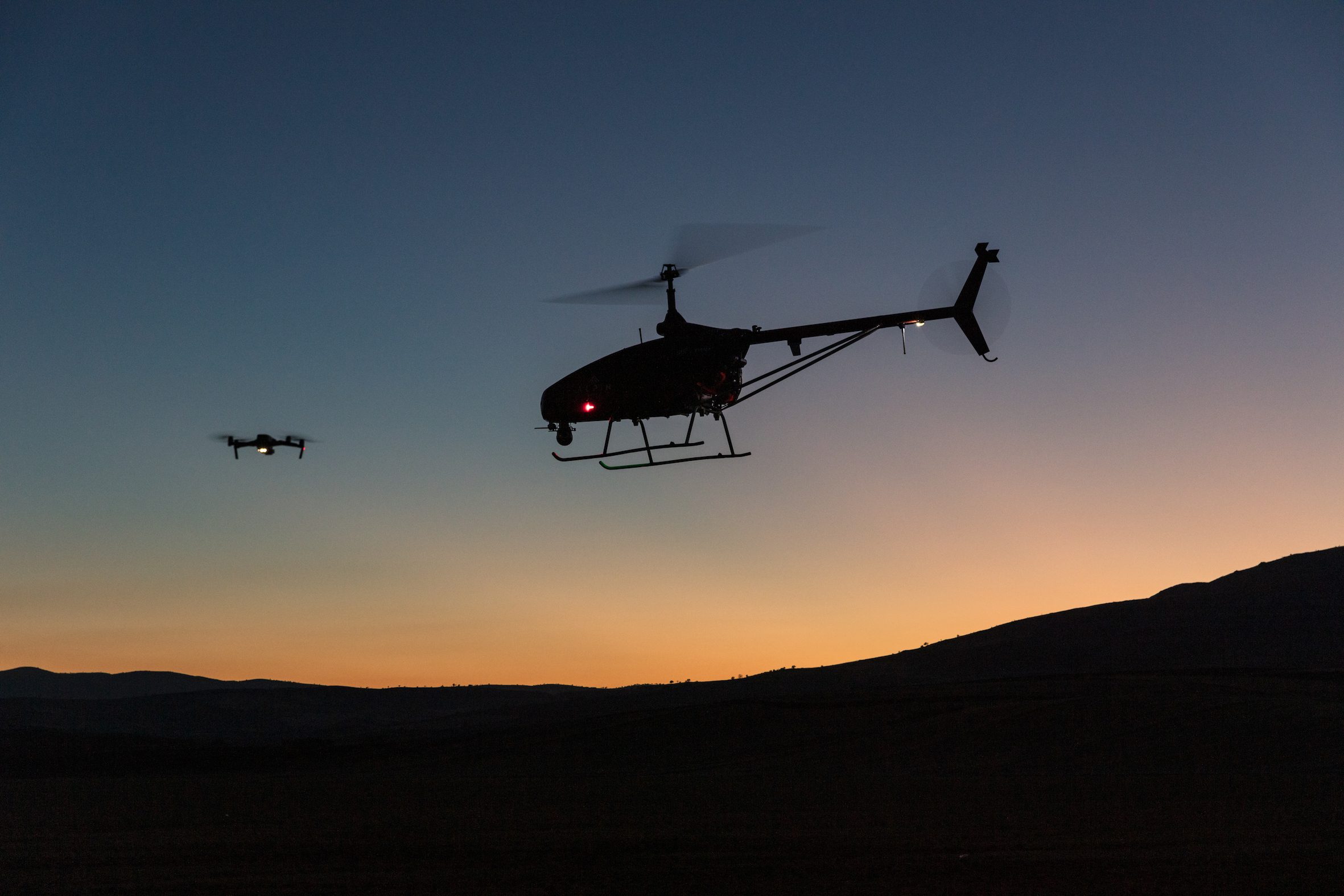Autonomous Helicopter Successfully Navigates Using Computer Vision in Day and Night Conditions, Paving the Way for Advanced Drone Applications
by DRONELIFE Staff Writer Ian J. McNabb
Silicon Valley-based autonomous helicopter developer UAVOS recently announced that they had successfully tested their autopilot system using computer vision in collaboration with a client. This innovative new AI-driven approach will allow for more effective operation in GNSS-denied environments where normal autopilot systems (which are totally reliant on a constant stream of GPS data to situate themselves within their environment) might fail.
According to the press release, the onboard computer vision-based alternative navigation module used deep learning algorithms to provide UAVOS’ integrated avionics system with the geospatial coordinates. This method for acquiring and processing enabled the drone to “see” and interpret its environment, allowing it to navigate autonomously without needing GNSS. The system was tested in both daytime and nighttime conditions, thanks to a variety of integrated sensors and imaging systems, and successfully aided in both takeoff and landing procedures without outside intervention.
“Our engineering support of this project will help our clients to leap forward in drone technology,” said Aliaksei Stratsilatau, CEO of UAVOS. “By enabling truly autonomous flight in complex environments, we are empowering businesses and organizations to leverage drones in new ways. This technology is not just about improving efficiency; it’s about fundamentally changing how we approach tasks that were once too dangerous or difficult for humans to undertake.”
This news follows a successful trial earlier this summer that showcased the potential of UAVOS’ UH-170 unmanned helicopter towards medical applications, via the UAV’s capability to use its payload drop system to pick up loads in difficult locations without landing. The UVH 170 UAS boasts a lifting capability of 15 kg, a travel range of 350 km, and an operating speed of 60 km/h. The payload box can carry approximately 0.018 cubic meters of cargo.
According to their press release, “UAVOS Inc. develops and manufactures security and commercial solutions based on advanced Unmanned Systems with an international investor base.” More information about UAVOS is available here.
Read more:
Miriam McNabb is the Editor-in-Chief of DRONELIFE and CEO of JobForDrones, a professional drone services marketplace, and a fascinated observer of the emerging drone industry and the regulatory environment for drones. Miriam has penned over 3,000 articles focused on the commercial drone space and is an international speaker and recognized figure in the industry. Miriam has a degree from the University of Chicago and over 20 years of experience in high tech sales and marketing for new technologies.For drone industry consulting or writing, Email Miriam.
TWITTER:@spaldingbarker
Subscribe to DroneLife here.

